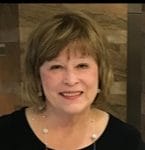“My wound is geography. It is also my anchorage, my port of call.” These words of celebrated Lowcountry author Pat Conroy loomed large last week when I met up with lifelong friends and former teaching colleagues from Colorado and other faraway places for an excursion to Beaufort, South Carolina. Inevitably, we reconnected as though no time or distance had ever separated us. We shared our stories, explored unfamiliar terrain, drank a little wine, laughed loudly, and planned new adventures. These joyous moments were tempered by other more sobering reflections: within our group, unexpected and monumental losses of homes and marriages and parents and even children made us even more appreciative of our long-time friendships. Unlike our younger selves, we realized as survivors of life’s complexities that our time together was fragile, resulting in a certain urgency to make the most of this experience.
We stayed at the new home of one of the group members, where we immediately felt at home and enjoyed our host’s unparalleled hospitality. This same southern graciousness was evident in the unique way that the layout of the neighborhood nurtured friendliness. No garages were visible, as they were accessible via the alleys behind the homes; the front of each residence featured wide porches decorated with lush plants and comfortable rocking chairs. A centrally located verdant common space featured moss-covered trees and picnic tables, signaling welcome to even a casual passer-by. Warm greetings, punctuated by plenty of thank-you’s and ma’am’s and bless your heart’s, predominated. The English teacher in me enjoyed learning correct Southern uses of the 2nd person pronoun: you (to address a single individual directly), y’all (to direct a comment to a specified small group), and all y’all (to encompass, well, absolutely everyone). The Southerners were curious about their visitors and queries often fell into three distinct categories: What church do you belong to? Who are your people? and What do you like to drink? These nuances highlighted the subtle differences that made this location both distinctive and delightful.
Beaufort, well known for its rich colonial and antebellum history, is located in the southernmost region of the state; we found it to be an enchanting and picturesque city with a storied past. Situated along the Atlantic coast, it offered stunning views of the water surrounded by the plush landscape of the Lowcountry. We could see its colonial history reflected in the architecture as we toured historic buildings and landmarks such as the Beaufort Arsenal, St. Helena’s Episcopal Church, and the Robert Smalls House. Once a major center of the South’s cotton industry, we sensed from the palatial homes of those rich plantation owners as well as the art galleries of the Gullah-Geechee the uneasy history of a time when the city was deeply divided over issues of race and equality.
The entire experience there was a sensory extravaganza. No words could adequately capture the gentle sway of the moss-covered trees, the endearing gaze of the turtles as we strolled along the trail, the majesty of the alligators’ glides across a tranquil lake, the swift and graceful swoop of the pristine white egrets as they landed protectively close to their babies. Likewise, the steady clop of horse hooves, the shriek of the birds over the towering trees, and the ripple of the water as fish leapt eagerly into the sunshine captured our ears and our imaginations. Then there were those incredible tastes: simmering tomato pie, succulent shrimp freshly caught, Lowcountry boil of potatoes and corn and sausage and sweet onions, all topped off with bourbon peach pie. We indulged in wine that warmed our hearts and enriched our tales both old and new.
The pinnacle of this experience, however, was connecting in exceptional ways with our favorite author Pat Conroy. Our connections with our Beaufort friends enabled us to see his former home up close, take a carriage ride through the magnolia trees of his old neighborhood, view the jacket his abusive military hero pilot father once wore, sit at his desk, trace the cursive of his drafts for Prince of Tides, interact with his former teacher and students, experience precisely what it meant to him to be an integral part of this phenomenal place. Our own teaching journeys each had been transformed and inspired by his honest and intoxicating prose, first in the Water is Wide, then later in works like the Prince of Tides, The Great Santini, Lords of Discipline, and others. He was our revered muse at times in our lives when we desperately needed to be assured that despite dysfunctional families, violence, racism, injustice and inequity, life was still oh so worth living; we were able to convey this to the young people we taught, and our debt to this wordsmith was no longer a frozen secret, but rather an integral bond we confessed to one another in vivid detail.
I am richer for having lived the Lowcountry experience firsthand, as it is reflective of the broader American experience. What Conroy describes as his “wound” and “anchor” has emerged from its colonial past and beyond, and its freshwater ponds, lush forests, migratory birds, weighty history, talented artists, and human inhabitants have spoken to me and others in powerful and transformative ways. I returned home with a full heart, altered by serendipitous new encounters with people and experiences that help me understand life much better than I could before.

Janet Call
Janet Call is a loving grandmother, avid reader, storyteller, and retired educator. After nearly 50 years in the classroom, she published her first novel Empty Desk and continues to search for writing inspiration daily.





